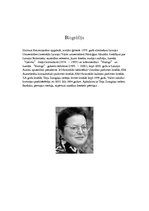

However, on 19 February 1236, Pope Gregory IX issued a papal bull declaring a crusade against Lithuania. The Order was in conflict with the papacy under Pope Gregory IX and the Holy Roman Emperor, two of its biggest supporters, over Estonia.


By the 1230s under the leadership of Master Volkwin, the Order was coping with strained financial resources, decreasing manpower, and ill reputation. The Sword-Brothers were established in 1202 in Riga to conquer and convert pagan Baltic tribes to Christianity. To commemorate the battle, in 2000 the Lithuanian and Latvian parliaments declared 22 September to be the Baltic Unity Day. Some thirty years' worth of conquests on the left bank of Daugava were lost. The battle inspired rebellions among the Curonians, Semigallians, Selonians, Oeselians, tribes previously conquered by the Sword-Brothers. The Sword-Brothers, the first Catholic military order established in the Baltic lands, was soundly defeated and its remnants accepted incorporation into the Teutonic Order in 1237. It was the earliest large-scale defeat suffered by the orders in Baltic lands. Between 48 and 60 knights were killed, including the Livonian Master, Volkwin. The Battle of Saule ( Lithuanian: Saulės mūšis / Šiaulių mūšis German: Schlacht von Schaulen Latvian: Saules kauja) was fought on 22 September 1236, between the Livonian Brothers of the Sword and pagan troops of Samogitians and Semigallians. These unique advantages make Saule Technologies cells "the perfect energy source for all kinds of IoT devices in virtually all conditions, regardless of power grid availability", according to the Company's statement.The Livonian Confederation in 1260, showing the Battle of Saule near Šiauliai The perovskite solar cells developed by Saule Technologies are not only lightweight, thin and flexible, but they are also able to perform well even in artificial light. However, such devices require power and this has greatly limited their potential applications to date. The concept behind IoT is to connect a variety of often small and highly-specialized electronic devices in a network so that they can generate and send information to each other. Google Cloud will also become a strategic partner of both companies, providing cloud computing services and technologies. Saule Technologies and Columbus Energy have partnered with Google Cloud, signing a strategic cooperation agreement to develop new products using perovskite solar cells and solutions in the field of distributed energy and IoT (Internet of Things). In December 2014 in Boston, Saule Technologies unveiled the world's first printed perovskite. With a Japanese investor on board, along with support from the Polish National Centre for Research and Development and several research grants worth more than EUR 20 million, Saule Technologies is working on a large-scale, prototype production line. The company has conducted advanced research on perovskite applications in solar energy harvesting and optoelectronics with leading international universities in the UK, Israel, Germany, Italy and Spain. The stability and water resistance of the modules make them ideal for the construction industry. This technique allows the shapes and areas covered by each layer to be customized according to requirements. Saule Technologies has been working on the application of ink-jet printing for fabricating free-form perovskite solar modules since 2014. The size of the solar panel being tested on Skanska's Spark office building is 1.3 x 0.9 meters, containing 52 photovoltaic modules. Also in December 2018, Saule Technologies announced that Skanska has gone through with the installation of the first big format perovskite solar panel provided by Saule Technologies, integrated into its office in Warsaw, Poland. The installed commercial prototype is made of 72 perovskite modules encapsulated in curved glass. In December 2018, The Henn-na Hotel in Japan, a technologically advanced hotel staffed by robots, installed perovskite solar technology developed by Saule Technologies. Saule's aim is to combine perovskite solar cells with other currently available products. The company is working on the development of a flexible and semi-transparent cell based on PET foil. Saule Technologies is a Polish start-up that designed a low-temperature method for manufacturing flexible photovoltaic perovskite cells.


 0 kommentar(er)
0 kommentar(er)
